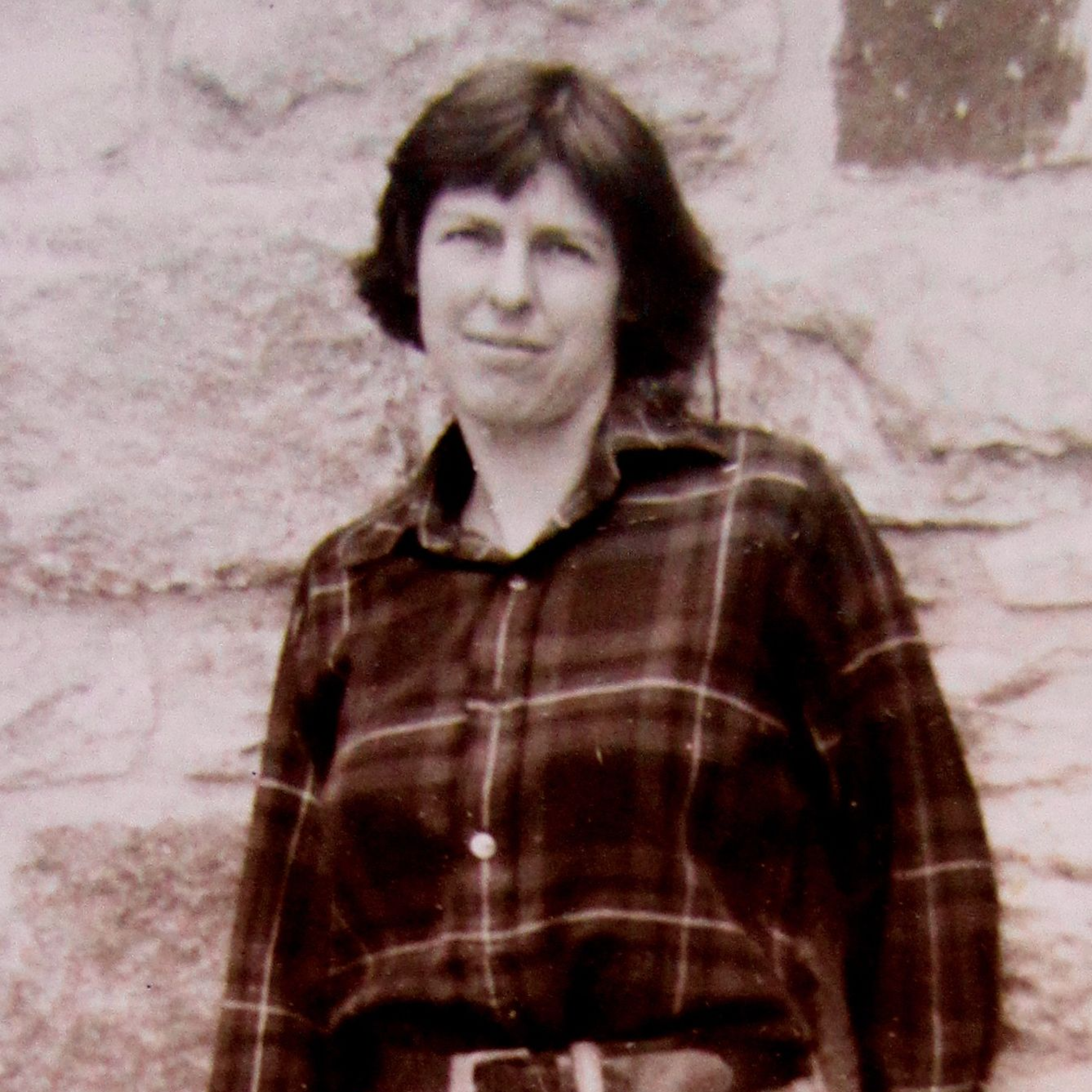Mary Gregory

Mary “Molly” Gregory, Black Mountain College, 1941-47. Courtesy of Western Regional Archives.
Woodworking Class with Molly Gregory. Courtesy of Western Regional Archives.
FOCUS
Art/ Design/ Craft
ROLE
Faculty
ATTENDANCE
1941 - 1947
BIRTH
Woodmere, NY
Early Life
After World War I, Mary 'Molly' Gregory’s father, bought the farm which had belonged to the Gregory family in the 1600s. It was there in Framingham, Massachusetts that Mary spent her childhood. The family felt that a farm was an ideal environment for rearing children, a place where they would be close to nature and where they would learn respect for work and develop resourcefulness.
Molly attended high school at the Beaver Country Day School in Chestnut Hill, Massachusetts and enrolled in 1932 at the newly-opened Bennington College where she majored in sculpture. In 1936 she was a member of the first graduating class.
Gregory's first job was at the Cambridge School in Weston, Massachusetts where she taught sculpture and drawing to grades seven through twelve. She also spent time in the woodworking shop.
At Black Mountain College
Molly first heard about the newly-founded Black Mountain College at Bennington. She recalls that she was excited by the descriptions of its beginnings. Although both Bennington and Black Mountain were progressive schools, there were significant differences and those differences interested Gregory. She was especially drawn to the curriculum taught by Josef Albers. Her Bennington roommate, Ruth Bailey, enrolled at Black Mountain as an apprentice upon graduation from Bennington.
In 1941 Molly was offered a fellowship as Appentice Teacher to teach a Plastics Workshop and study with Josef Albers at Black Mountain. She was interested in design and carpentry and thought Albers’s basic curriculum would provide her with a good foundation. The following year she was appointed Instructor in Crafts – a misnomer which was corrected the following year when she was reappointed as Instructor in Woodworking.
Woodworking
Titles hardly describe Mary Gregory’s role at Black Mountain. From the beginning she was deeply immersed in college life. Soon after her arrival most of the men students were drafted or enlisted in the war effort, and the practical needs of the college demanded her attention. She took over the woodworking shop which Robert Bliss had set up, and her skills were essential to the completion of the Studies Building and other construction projects. Students came to the woodworking shop to build tables, chairs and bookshelves for their studies. The shop made benches, chests of drawers, the sign at the college entrance, and anything else needed at the college. Gregory constructed a large table for the classroom in the Studies building and benches for the Quiet House, a house of meditation designed and built by Alex Reed in memory of Mark Dreier. Mark, the nine year old son of Theodore and Barbara Dreier, was killed in an accident at the college. Her last project was the renovation of the farm house to accommodate two families.
Work Program
She also directed the work program, kept the books for the college farm, and in 1943, when the farmer left without notification, she took over the running of the farm. She taught at and directed summer work camps. She was a member of the Board of Fellows from June 1945 until her resignation.
Outside Work
In addition to her work as teacher, Mary Gregory designed private commissions. Her work showed both a respect for craftsmanship and an imaginative approach to problem solving. A silver service was designed with dowels and a removable cloth that could be washed. Table supports were bent inward to provide knee space for the sitter. A rectangular cube could be used either as a low table or as a seat. She designed plates as well as belts of leather and cloth. She also produced a chair redesigned by Josef Albers from a Mexican model.
A walnut and pine sideboard made between 1961 and 1965 was included in the fall 2003 “The Maker’s Hand: American Studio Furniture, 1940 to 1990"" at the Museum of Fine Arts in Boston. A Quaker, Mary Gregory presently lives at The New England Friends Home in Hingham, Massachusetts where she now makes quilts.
After BMC
Mary Gregory left Black Mountain at the end of the 1947 summer to accept a position as manager and designer at Woodstock Enterprises in Vermont, a woodworking shop organized by David Bailey, a former Black Mountain student. The shop produced custom furniture, cabinetry and other wood products and had crews which worked on construction and remodeling projects in the field.
Gregory resigned in 1953 to set up her own woodworking business first in Lexington and then in Lincoln, Massachusetts. From 1954-88 the shop did custom work for interiors as well as furniture design, church furnishings and alter carvings. As a designer/builder she built houses and made renovations to existing structures. She taught woodworking and carving at the Concord Academy, the Belmont Day School, and Shady Hill School.
“Black Mountain’s contribution was that you could live creatively simply by the way you looked at life and the way you lived it. I didn’t learn technique at Black Mountain. I learned a point of view.” Mary Gregory
Biography written by Mary Emma Harris for Black Mountain Project. This biography was funded by a grant from the Graham Foundation for a study of architecture at Black Mountain College.
Black Mountain College Project
Mary Emma Harris interviewed Molly in 1997 and the transcript is available from Appalachian State University under The Mary Emma Harris and Black Mountain College Project, Inc. Oral History collection.
Topics: BenningtonCollege (first graduating class) - French School in Cambridge - French family - Carpentry shop in Woodstock, Vermont and teaching woodworking at Concord Academy - Teaching at BMC - Construction program - Woodworking program - Josef Albers’ chair design and construction - Comparison of Bennington College and BMC - BMC as democratically run community - Faculty salaries - Josef Albers as teacher and community member - Importance of refugees to community - Quiet House construction - BMC farm - Renovation of farm house - Summer sessions in comparison with regular sessions - Heinrich Jalowetz - Importance of location to BMC - College maintenance staff - Ben Sneed - Location in the South - Decision to leave the college - Effect of World War Two on college - Postwar transition - College entertainment - Importance of BMC - Discussion of photographs of furniture designed and constructed by Gregory








